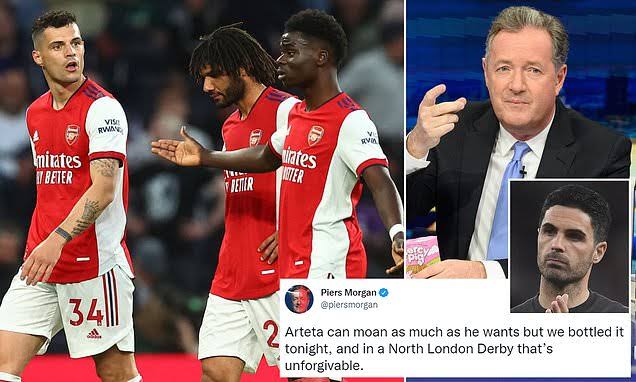Man City ‘agree personal terms’ with Nottingham Forest star as Pep Guardiola continues summer rebuild

Manchester City’s summer transfer window has been characterized by ambitious moves and strategic acquisitions as Pep Guardiola continues his relentless pursuit of perfection. The Citizens have embarked on a comprehensive squad overhaul, bringing in fresh talent while bidding farewell to club legends. Among the most intriguing developments in this transfer saga is the reported agreement of personal terms with Nottingham Forest’s creative midfielder Morgan Gibbs-White, a move that could reshape City’s attacking dynamics for the upcoming season.
The pursuit of Gibbs-White represents more than just another transfer target; it symbolizes Manchester City’s commitment to maintaining their competitive edge in an increasingly challenging Premier League landscape. As the club navigates the complexities of modern football’s financial regulations and competitive demands, every signing becomes a calculated risk that could determine their success in the coming seasons.
The Current Transfer Landscape: City’s Strategic Acquisitions
Manchester City’s summer recruitment drive has been nothing short of impressive, with the club securing the services of several high-profile players who promise to add depth and quality to Guardiola’s squad. The acquisition of Tijjani Reijnders from AC Milan represents a significant coup, with the Dutch midfielder bringing his exceptional passing range and tactical intelligence to the Premier League. Reijnders’ ability to dictate tempo and create chances from deep positions aligns perfectly with Guardiola’s possession-based philosophy.
The signing of Rayan Cherki from Olympique Lyonnais has been particularly noteworthy, as the French attacking midfielder was initially seen as the primary target before the Gibbs-White links emerged. Cherki’s arrival brought excitement among City fans, who view him as a potential successor to Kevin De Bruyne’s creative influence. His technical ability, vision, and flair for the spectacular make him an ideal fit for Guardiola’s system, though questions remain about his consistency and adaptation to English football.
Rayan Ait-Nouri’s move from Wolverhampton Wanderers addresses City’s need for defensive reinforcement, particularly in the full-back positions. The Algerian international brings pace, attacking threat, and Premier League experience, having established himself as one of the most promising young defenders in the league. His ability to contribute both defensively and offensively makes him a valuable asset in Guardiola’s tactical setup.
The acquisition of Marcus Bettinelli, while perhaps less glamorous than the other signings, demonstrates City’s attention to detail in building squad depth. The goalkeeper’s experience and reliability provide crucial backup options, ensuring the club is well-prepared for the demands of competing across multiple competitions.
The Gibbs-White Conundrum: Why City Want the Forest Star
Morgan Gibbs-White’s emergence as a Manchester City target represents a fascinating case study in modern football recruitment. The 25-year-old has transformed from a promising youngster at Wolverhampton Wanderers into one of the Premier League’s most effective creative midfielders during his time at Nottingham Forest. His journey epitomizes the modern footballer’s path to success, marked by patience, development, and the ability to seize opportunities when they arise.
Gibbs-White’s impact at the City Ground has been nothing short of remarkable. Since joining Forest in the summer of 2022, he has become the heartbeat of their attacking play, combining technical excellence with tactical intelligence. His seven goals and ten assists in 34 Premier League appearances last season tell only part of the story; his ability to create space, link play, and provide the spark that transforms defensive stability into attacking threat has been instrumental in Forest’s impressive seventh-place finish.
The England international’s playing style aligns perfectly with Guardiola’s tactical requirements. His comfort in tight spaces, ability to receive the ball under pressure, and vision to spot attacking opportunities make him an ideal candidate for City’s possession-heavy system. Unlike many attacking midfielders who rely primarily on pace or power, Gibbs-White’s game is built on intelligence, positioning, and technical precision – qualities that Guardiola has consistently valued throughout his managerial career.
From a tactical perspective, Gibbs-White offers versatility that could prove invaluable to City’s squad rotation. His ability to operate in various attacking positions – whether as a traditional number 10, a false 9, or even drifting wide – provides Guardiola with multiple options in his tactical arsenal. This flexibility becomes particularly important during the congested fixture periods that characterize modern football, where squad rotation and tactical adaptation are crucial for success.
The Financial Chess Game: PSR Implications and Forest’s Dilemma
The potential transfer of Morgan Gibbs-White to Manchester City cannot be viewed in isolation from the broader financial landscape that governs modern football. Nottingham Forest’s reluctance to part with their star player is complicated by the looming specter of the Premier League’s Profit and Sustainability Regulations (PSR), which have already claimed several high-profile casualties in recent transfer windows.
Forest’s predicament is emblematic of the challenges faced by clubs seeking to establish themselves in the Premier League while navigating increasingly strict financial regulations. The club’s investment in squad development since their promotion has been substantial, but the PSR constraints mean that difficult decisions about player sales may become unavoidable. The potential departure of Anthony Elanga to Newcastle United has already weakened their attacking options, making the prospect of losing Gibbs-White even more challenging.
The financial dynamics of the potential transfer are complex and multifaceted. While Forest may be reluctant to sell, the reality of PSR compliance could force their hand, particularly if Manchester City present an offer that significantly exceeds Gibbs-White’s current market value. The timing of such a move becomes crucial, as clubs must balance their immediate competitive needs against long-term financial sustainability.
For Manchester City, the financial aspect of the transfer represents both an opportunity and a challenge. Their financial resources allow them to compete for top talent, but they must also consider their own PSR obligations and the broader implications of their transfer strategy. The club’s approach to squad building has evolved to focus not just on immediate impact but on long-term value creation, making players like Gibbs-White attractive targets due to their age, potential, and resale value.
The Kevin De Bruyne Factor: A Changing of the Guard
The departure of Kevin De Bruyne represents one of the most significant developments in Manchester City’s recent history. The Belgian maestro’s influence on the club’s success cannot be overstated – his creativity, leadership, and ability to deliver in crucial moments have been instrumental in City’s domestic and European triumphs. His exit creates a void that extends beyond mere statistics, encompassing leadership, experience, and the intangible qualities that separate good teams from great ones.
De Bruyne’s departure opens up opportunities for other players to step into more prominent roles, but it also creates pressure to find adequate replacements. While no single player can replicate his unique combination of qualities, the club’s transfer strategy appears focused on assembling a group of players who can collectively fill the creative void he leaves behind. Gibbs-White’s potential arrival must be viewed within this context – not as a direct replacement for De Bruyne, but as part of a broader restructuring of City’s creative hierarchy.
The psychological impact of De Bruyne’s departure on the squad cannot be underestimated. His presence provided confidence and stability, particularly in high-pressure situations. The integration of new players like Gibbs-White will require careful management to ensure that the team’s chemistry and confidence remain intact during this transitional period.
Squad Dynamics and Competition for Places
The potential addition of Morgan Gibbs-White to Manchester City’s squad raises intriguing questions about playing time distribution and internal competition. Guardiola’s current options in attacking midfield positions include established stars like Phil Foden, promising youngsters like Claudio Echeverri and Nico O’Reilly, and experienced campaigners like Ilkay Gundogan. The addition of Gibbs-White to this mix would create intense competition for places, which could benefit the team’s overall performance levels.
Phil Foden’s evolution from promising academy graduate to established international star represents one of Manchester City’s greatest recent success stories. His ability to influence games from various positions makes him an indispensable part of Guardiola’s plans, but the addition of players like Gibbs-White could provide him with the support and competition necessary to reach even greater heights.
The futures of players like James McAtee and Ilkay Gundogan add another layer of complexity to the squad planning equation. McAtee’s potential departure would create space for new arrivals, while questions surrounding Gundogan’s long-term commitment to the club could influence the club’s transfer strategy. These decisions will ultimately determine whether Gibbs-White’s arrival represents squad enhancement or merely rotation of personnel.
Tactical Integration: How Gibbs-White Fits Guardiola’s System
Pep Guardiola’s tactical philosophy has evolved continuously throughout his tenure at Manchester City, but certain principles remain constant: technical excellence, positional discipline, and the ability to contribute to both defensive and offensive phases of play. Morgan Gibbs-White’s playing style suggests he possesses many of the qualities that Guardiola values in his attacking players.
The England international’s ability to operate in small spaces would be particularly valuable in Guardiola’s system, where players are often required to receive and distribute the ball under intense pressure. His experience in the Premier League provides him with the physical and mental resilience necessary to adapt to City’s demanding style of play, while his creativity and vision offer the unpredictability that can unlock stubborn defenses.
Gibbs-White’s defensive contribution cannot be overlooked in assessing his potential fit within Guardiola’s system. Modern attacking midfielders are expected to contribute significantly to defensive pressing and ball recovery, and Gibbs-White’s work rate and tactical discipline suggest he could adapt to these demands. His ability to track back, press opponents, and contribute to the team’s defensive shape would be crucial in maintaining the balance that Guardiola seeks in his formations.
The tactical flexibility that Gibbs-White offers could prove particularly valuable in European competitions, where tactical adaptation and squad rotation become crucial factors in achieving success. His ability to play in multiple positions and systems would provide Guardiola with the versatility necessary to respond to different tactical challenges throughout the season.
The Broader Implications: Premier League Competitiveness
The potential transfer of Morgan Gibbs-White to Manchester City reflects broader trends in Premier League football, where the gap between established elite clubs and ambitious challengers continues to evolve. Nottingham Forest’s rise from Championship promotion to European competition qualification represents one of the most impressive recent success stories in English football, but their ability to retain key players against offers from elite clubs remains a constant challenge.
The transfer saga highlights the delicate balance between financial sustainability and competitive ambition that characterizes modern football. Forest’s potential willingness to sell Gibbs-White, despite his importance to their success, demonstrates the practical realities of operating within current financial regulations. This dynamic creates opportunities for clubs like Manchester City while potentially limiting the competitive growth of smaller clubs.
The impact of such transfers extends beyond the immediate clubs involved, influencing the broader competitive landscape of the Premier League. The concentration of talent at elite clubs through transfers like this could affect the league’s overall competitiveness, though the recent success of clubs like Forest suggests that intelligent recruitment and tactical innovation can still create opportunities for sporting success.
Looking Ahead: The Summer Transfer Window’s Final Stages
As the transfer window progresses toward its September 1 deadline, the Morgan Gibbs-White saga represents just one element of Manchester City’s broader transfer strategy. The club’s approach to squad building has become increasingly sophisticated, balancing immediate needs with long-term planning while navigating the complex financial and regulatory landscape that governs modern football.
The resolution of the Gibbs-White situation will likely depend on several factors, including Nottingham Forest’s ability to secure alternative revenue streams to meet PSR requirements, Manchester City’s willingness to meet Forest’s valuation, and the player’s own preferences regarding his career development. The interconnected nature of these decisions means that developments in one area could quickly influence outcomes in others.
The transfer window’s final weeks promise to be crucial in determining the shape of Manchester City’s squad for the upcoming season. Whether or not Gibbs-White joins the club, the pursuit itself demonstrates City’s commitment to continuous improvement and their recognition that maintaining competitive advantages requires constant evolution and adaptation.
Conclusion: A Transfer That Defines Modern Football
The Manchester City pursuit of Morgan Gibbs-White encapsulates many of the defining characteristics of modern football: the intersection of sporting ambition and financial regulation, the challenge of maintaining competitive balance in an increasingly polarized landscape, and the complexity of transfer negotiations in an era of unprecedented financial scrutiny.
For Manchester City, the potential addition of Gibbs-White represents both an opportunity to strengthen their squad and a challenge to integrate new talent into an already complex tactical system. The success of such a transfer would depend not only on the player’s individual quality but on the club’s ability to manage the transition period effectively while maintaining their competitive standards.
For Nottingham Forest, the situation represents the eternal challenge faced by ambitious clubs seeking to establish themselves among English football’s elite. The potential loss of their star player would be a significant blow to their sporting ambitions, but the financial realities of modern football may make such sacrifices unavoidable.
Ultimately, the Morgan Gibbs-White transfer saga serves as a microcosm of contemporary football’s broader challenges and opportunities. As clubs navigate the complex intersection of sporting ambition, financial regulation, and competitive balance, individual transfer decisions become emblematic of much larger strategic and philosophical questions about the future direction of the sport.
The coming weeks will reveal whether this particular transfer materializes, but regardless of the outcome, the story of Manchester City’s pursuit of Morgan Gibbs-White will remain a fascinating case study in the art and science of modern football recruitment. It demonstrates how individual player movements can reflect broader trends in the sport while highlighting the human elements that make football’s transfer market such a compelling and unpredictable spectacle.
As Pep Guardiola continues his quest for tactical perfection and Manchester City pursue their ambitions across multiple competitions, the decisions made in this transfer window will play a crucial role in determining their success in the seasons to come. Whether Morgan Gibbs-White becomes part of that journey remains to be seen, but his potential arrival would undoubtedly add another intriguing chapter to the ongoing story of one of football’s most ambitious and successful clubs.















